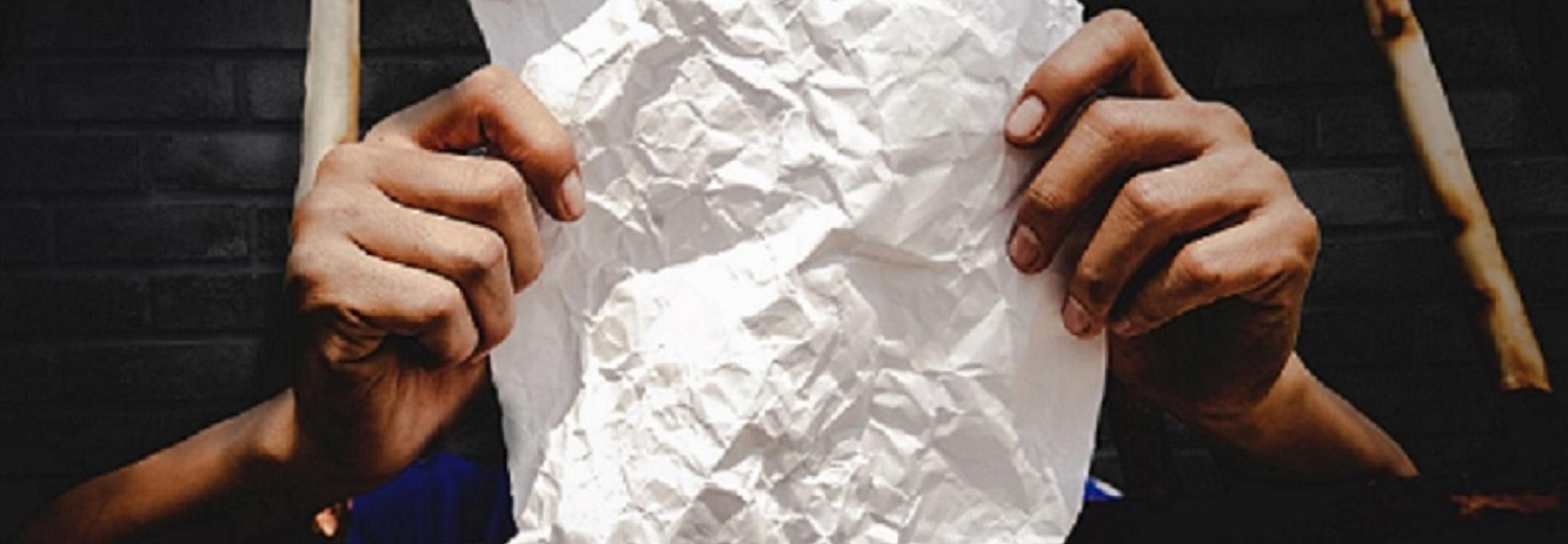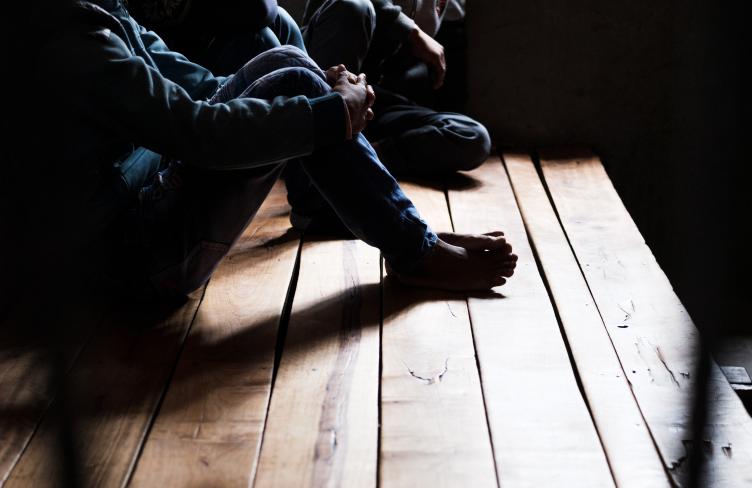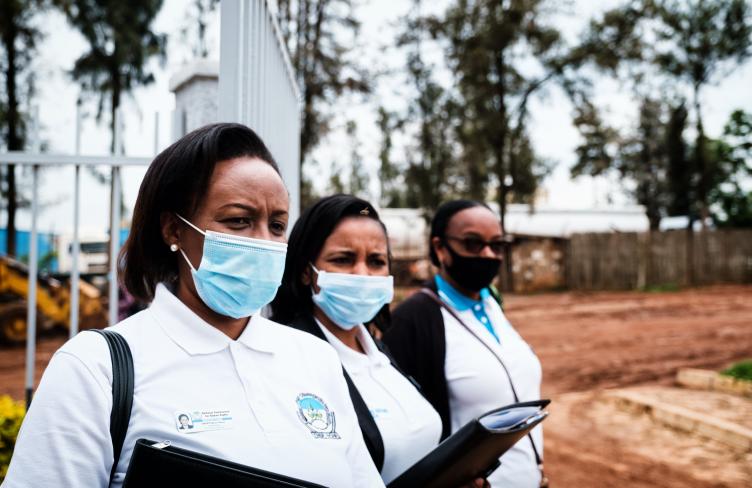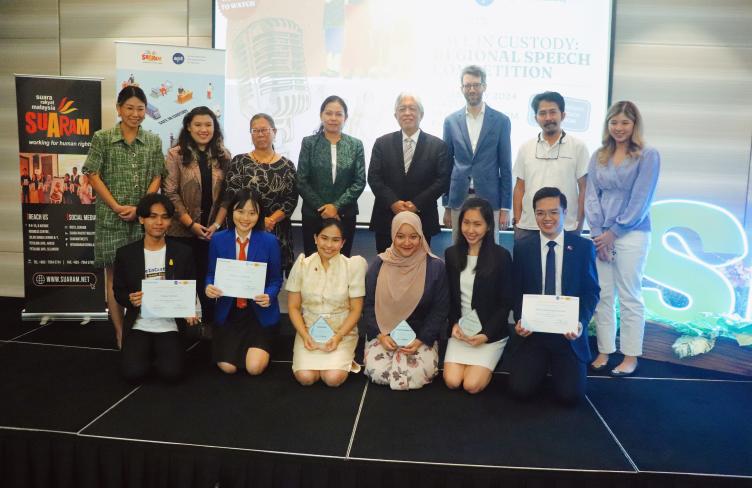
This April, a desperate prisoner in São Paulo wrote a love letter to his partner:
—"I am afraid of what might come. I want you to know that you are the best woman in the world. In such a short time, you have made me very happy. I feel fulfilled in our relationship and proud of it. I feel like the happiest man in the world. I hope you never forget me. Because wherever I am, I will never forget you[1]."
He wrote this letter after discovering that 30 isolated prisoners suspected of being infected with COVID-19 were awaiting confirmation of their test results:
— "There is one employee who is crying. He says that he has a family that is afraid of getting the virus. And we have no one. All we have left is prayer. We ask God to protect us. They even banned the lawyer from visiting. The only person who could do anything for us[2]."
This story draws attention to the conditions in Brazilian prisons in the context of the COVID-19 pandemic. Brazil has one of the largest prison populations in the world and prison conditions are generally very poor. Although the penal system only has 442,000 places available, 748,000 people are deprived of their liberty[3]. In some establishments, the rate of overcrowding is 300%. Facilities generally have very poor structural conditions and basic medical care is unavailable. Mortality rates from natural causes are six times higher amongst prisoners than amongst the general population (52 persons per 10,000). In this context, the tremendous risk posed by the COVID-19 pandemic inside prisons is crystal clear.
What are the measures taken by the prison administration in Brazil during the COVID-19 pandemic?
Although Brazil's National Council of Justice (CNJ) issued guidelines designed to reduce the dangers of the pandemic in prisons, these have not been effectively respected by most State prison administrations, which are not bound to respect federal guidelines. On March 11, when the World Health Organisation (WHO) officially declared COVID-19 a pandemic, the CNJ urged state penal actors to reduce the number of prisoners, and especially the elderly, pregnant women, and those suffering from chronic illnesses. It also requested states to create contingency plans for dealing with the pandemic in prisons, such as the provision of hygiene supplies.
Over 32,500 detainees with health problems and/or who are over 60 years of age or pregnant, were released from prisons across Brazil between March and June 2020. This number represents less than 4.3% of all prisoners. This measure did not reach other groups of people, such as pre-trial detainees, because there is a great deal of resistance from public administrators and judges to take measures to release from prison for fear that citizens won't be protected.
At the same time, the few contingency plans developed by the states, more often regulate the need to provide PPEs to criminal justice officials, to the detriment of detainees. Thus, they present actions such as the increased use of sanitiser and masks by penitentiary staff. Measures should be taken into account to protect detainees as well.
In addition, there is no systematic testing of the prison population, which means that the real impact of the pandemic on prisons, as well as the number of either detainees or staff members who are or have been infected, remains and will remain unknown.
Indeed, the inaccuracies in the impact of COVID-19 on prisons are already a real problem. As of June 25, only 11,712 , or less than 1.5% of the total prisoner population, had been tested[4]. Of these, 4,045 persons (35%) tested positive. It has been reported that 59 prisoners have died of the virus, with the first death recorded in April. The death rate in the country is eight people per 100,000, one of the highest in the world, only behind the United States[5].
The CNJ further recommended that prison family visits be maintained during the pandemic. However, as recently as March, one of the first actions taken by state governments was to ban visits on the grounds that family and friends of prisoners could transmit the virus from outside to the prisons. Public officers are allowed to enter and leave penal establishments daily, which also generates risks of contamination.
This measure can cause mental suffering to the detainees which, according to the authors, could give rise to such significant suffering as to amount to punishment and torture. In addition to being essential for bringing basic materials to prisoners in a highly precarious environment, visits are mechanisms for affection and information on domestic life. Preventing contact between detainees and their families exacerbates rights violations and isolates the prisoners from the outside world.
What could be the consequences of the coronavirus for the lives of people deprived of liberty in Brazil?
Given the impact of the COVID-19 pandemic, it would be contradictory to make very positive predictions about the possible consequences of the virus for the lives of people deprived of liberty in Brazil in the short, medium, and long term. In the opinion of the authors, this is what can be expected:
a) More deaths, although the problem of under-registration will continue to obscure the real figures of what the disease actually means in prisons;
b) Unrest, since detainees have the need and right to reveal the precarious conditions of deprivation of liberty and to have some kind of contact with the world outside the prison.
c) Situations of violence committed by public officers, because there is an understanding that the excessive use of force is the most effective way to maintain order and to impose fear.
Unfortunately, existing laws, recommendations issued by the National Council of Justice and measures issued by other human rights bodies are not respected in Brazil. If they were respected, there could be slightly more dignified conditions of deprivation of liberty.
Love letters would still exist just to talk about love. They would not be used, in desperation, during a pandemic to say "goodbye".
Authors:
Ludmila Ribeiro - Associate Professor, Department of Sociology; Researcher, Center for Crime and Public Safety Studies, Federal University of Minas Gerais
Thais Lemos Duarte - Post-doctoral Researcher of the Sociology Graduate Department of the Federal University of Minas Gerais, Researcher of the Center for Crime and Public Security Studies of the Federal University of Minas Gerais, and former member of the Brazilian National Mechanism for Preventing and Combating.
[1] Information available here: https://radioagencianacional.ebc.com.br/direitos-humanos/audio/2020-05/covid-19-presos-enviam-cartas-com-declaracoes-despedidas-e-relatos-de.
[2] Information available here: https://radioagencianacional.ebc.com.br/direitos-humanos/audio/2020-05/covid-19-presos-enviam-cartas-com-declaracoes-despedidas-e-relatos-de.
[3] Information available here: http://depen.gov.br/DEPEN/depen/sisdepen/infopen
[4]Information available here: http://depen.gov.br/DEPEN/prevencao-do-coronavirus-no-sistema-prisional
[5]Information available here: https://www.cnj.jus.br/sistema-carcerario/covid-19/


